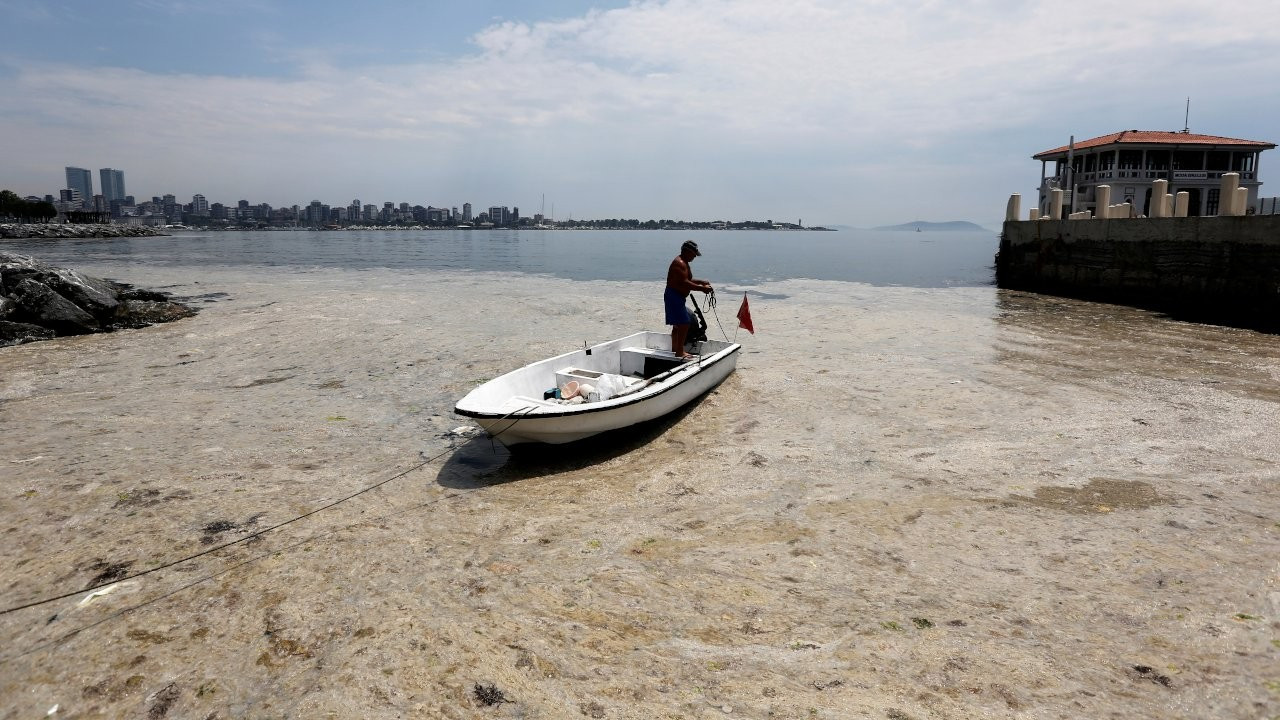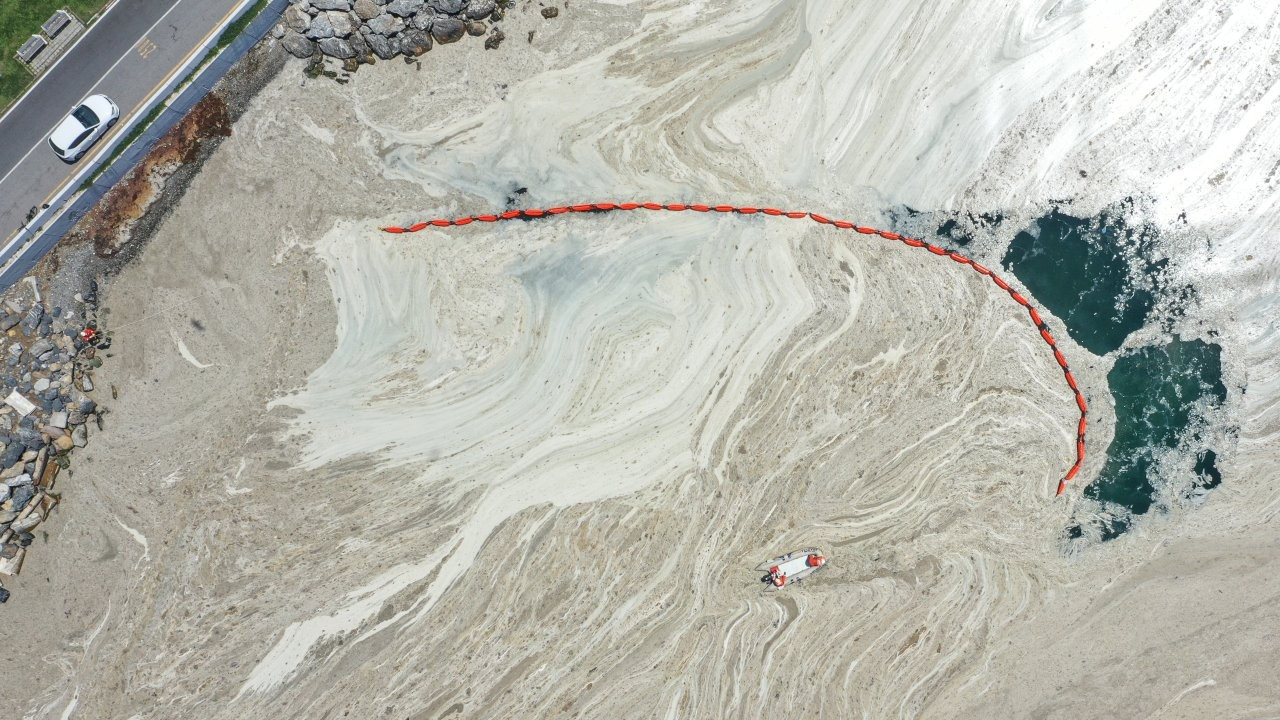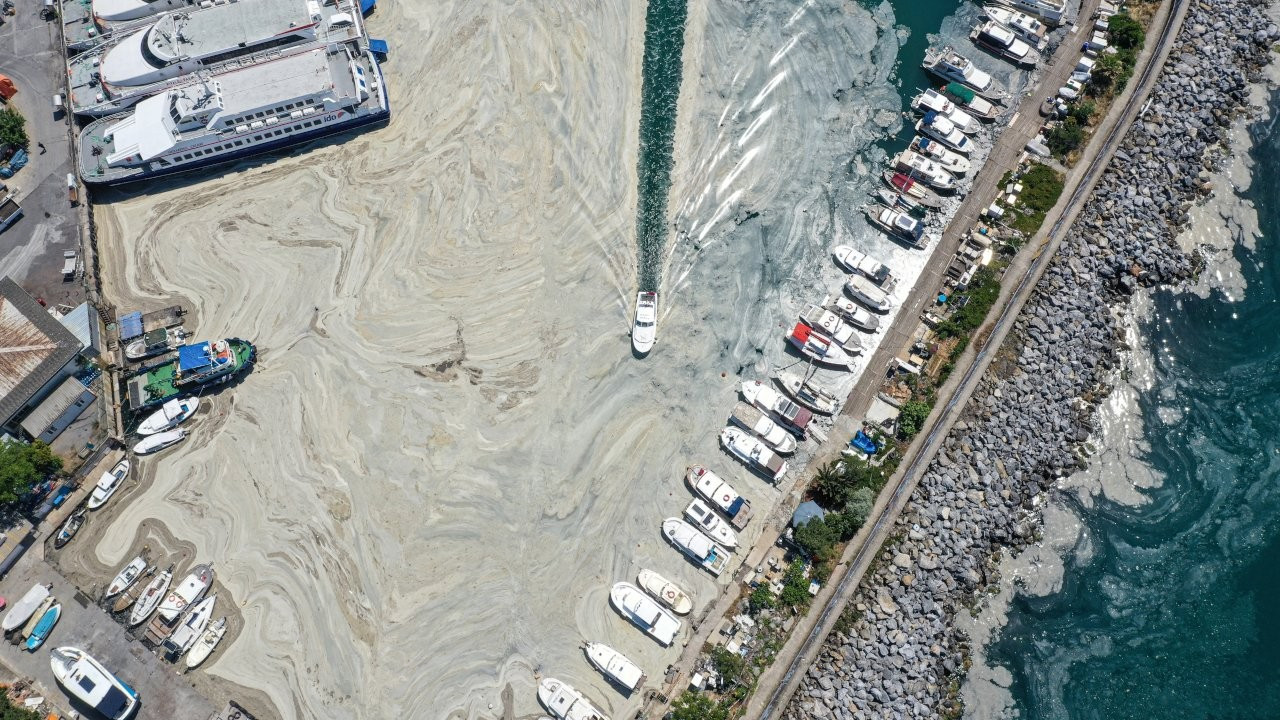Turkish authorities' solution to 'sea snot' plague: Sewage trucks
Turkish authorities have been trying to tackle the "sea snot" plague in the Marmara Sea with highly unusual methods, as a municipality in the northwestern province of Balıkesir used sewage trucks to remove the organic matter.
Duvar English
A Turkish municipality in the country's northwest came up with an unorthodox method to tackle the "sea snot" plague in the Marmara Sea, as municipal workers were seen using sewage trucks to remove the organic matter.
A thick layer of the organic matter, known as marine mucilage, has spread through the sea south of Istanbul covering harbors, shorelines and swathes of the surface. Some has sunk below the waves, suffocating seabed life.
Turkey on June 8 vowed to save the Marmara Sea by launching a disaster management program meant to clean up the outbreak threatening marine life and the fishing industry.
Municipalities started works in line with the Environment and Urbanization Ministry's program, but one of the most interesting methods was used by the Balıkesir Municipality.
Türkiye'nin en büyük deniz temizleme seferberliği kapsamında müsilaj temizleme çalışmalarını @csbgovtr Bakanlığımızın öncülüğünde Valimiz, Üniversitemiz, Kurumlarımız, Odalarımız ve gönüllüler ile birlikte Bandırma ve Erdek’te başlattık.#MarmaraHepimizin pic.twitter.com/apXWwTLABM
— Yücel Yılmaz (@yucelyilmazyy) June 8, 2021
Municipal workers in the Bandırma and Erdek districts were seen in the sea trying to clean the surface with sewage trucks, prompting ridicule on social media. Many also voiced concern for the well-being of the workers.
Environment Minister Murat Kurum on June 8 said 25 sea surface-cleaning and barrier-laying boats, as well as 18 other vessels, were working to prevent the spread of the mucilage. Illegal fishing and "ghost" nets would be halted and Turkey would declare Marmara a protected area by the end of 2021, he said.
"We are starting our cleaning efforts both on land and at sea at 15 points today," Kurum said. "We are determined to save the Marmara and we will save it."
Some 1,000 workers would bring the waste to shore and truck it to municipal facilities, he said.
Scientists say climate change and pollution have contributed to the proliferation of the substance, which contains a wide variety of microorganisms and can flourish when nutrient-rich sewage flows into seawater.

 Factories continue to pour wastewater into Marmara Sea despite 'sea snot' outbreakEnvironment
Factories continue to pour wastewater into Marmara Sea despite 'sea snot' outbreakEnvironment Turkey says it will defeat 'sea snot' outbreak in Marmara SeaEnvironment
Turkey says it will defeat 'sea snot' outbreak in Marmara SeaEnvironment Harrowing time-lapse video shows 'sea snot' invading Marmara SeaEnvironment
Harrowing time-lapse video shows 'sea snot' invading Marmara SeaEnvironment